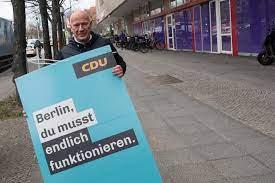In the past few days, the Berlin Senate, led by the new black-red government (which agreed on a coalition agreement under the name “The Best for Berlin”), published a first draft for the allocations for funds available to the districts in the years 2024/2025. The district of Neukölln has hit it particularly hard, in a communication from the district council of Wednesday it said: “[...] the district office of Neukölln for the financial years 2024/2025 [miss] per year 22.8 million euros to hold the status quo.” The district then presented a strike list that shows how the rulers does not care about the situation of the neighborhoods.
After the Berlin Senate budget in 2024/2025 saw massive cuts in the spendings for the districts, the county mayors warned that the austerity course will be particularly noticeable in the social field. In this way, the Neukölln Office published the following strike list:
· Security at 12 Neukölln Schools
· Day-cleaning at Neukölln Schools
· Homeless help is reduced
· Disappearance of the searching drug addict help
· Water playgrounds closed
· broken play equipment on playgrounds are no longer renewed
· Waste disposal in green areas is halved
· Closure of three youth and family facilities
· Reduction of district coordination from 2025
· Youth travels for particularly affected young people is no longer funded
· Old-Rixdorfer Christmas market falls away
· Free posts in the district office are temporarily not reoccupied
And as described above, not only the district Neukölln is affected. For example, the district Friedrichshain-Kreuzberg should also be save approx. 20 million a year. The austerity measures would affect similar areas, i.e. youth institutions, and other "social aids".
The reason why these things need to be saved is that about 80 percent of the budget is allocated expenditure, for example, for civil money. The districts thus have 20 percent of the fixed amount available for personnel and “own priorities”. For example, the Neukölln mayor Martin Hinkel (SPD) told the radio from rbb: "Our own priorities in recent years have generally been in the social and school sectors. If the means are no longer there and the rest is bound, it will logically disappear."
The biggest savings can be achieved in the personnel sector, which is why several districtshave announced a stop or a delayed stop, as well as the closure of public offices to save costs.
After the mayors of all twelve districts had written an “alarm letter” to the ruling Mayor Kai Wegener (CDU), new discussions on the budgeting were envisaged.
On Thursday evening a top round of the ruling mayor met. At the table were the senator of economies Giffey (SPD, formerly managing mayor), finance senator Stefan Evers (CDU), the franchises of the CDU and SPD, as well as a financial expert for the SPD. They decided that there should be 100 million euros more per year. This still remains a difference to the demands of the districts.
The decision of the double budget 2024/25 is pending until mid-July.
This situation shows once again that one cannot put hope in this system. For the money that the rulers make available for avoidable social help, they can just as easily take away when it suits them. To rely on social associations and welfare organisations also means to trust in this system. Because these organisations are part of it and often rely on the financing of the state. Even if the above measures are not fully implemented, and perhaps in some cases only for strategic reasons, so that the districts get more money, they clearly show where they are saved first, namely at the poorest.

Reigning Kai Wegner also grabs himself to "work" the city through closed public offices.

Whether Ms. Giffey dares to go to the playground again at the next Berlin election to make publicity photos?
